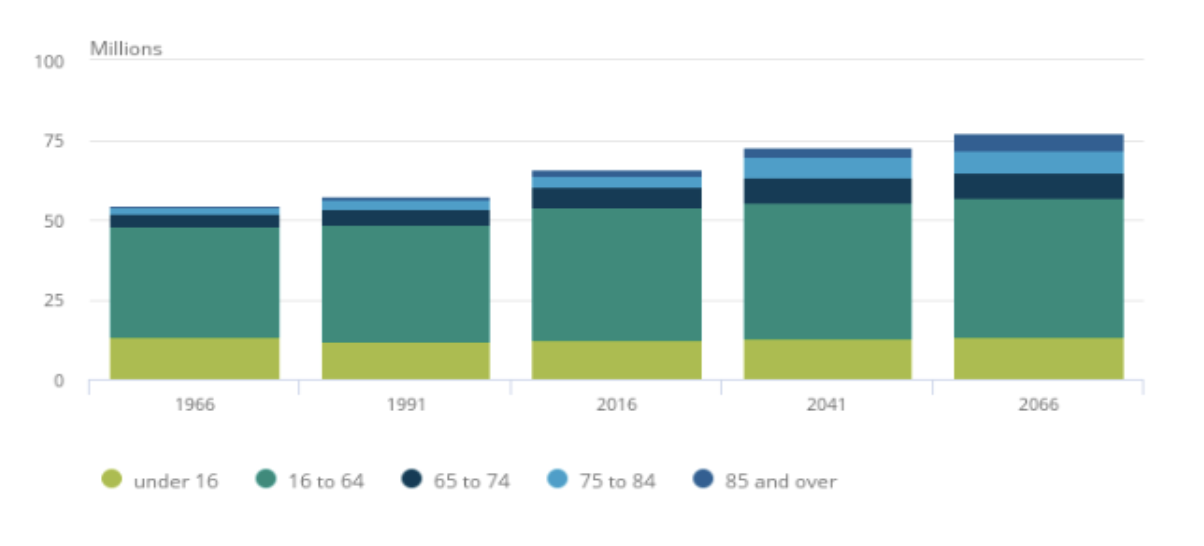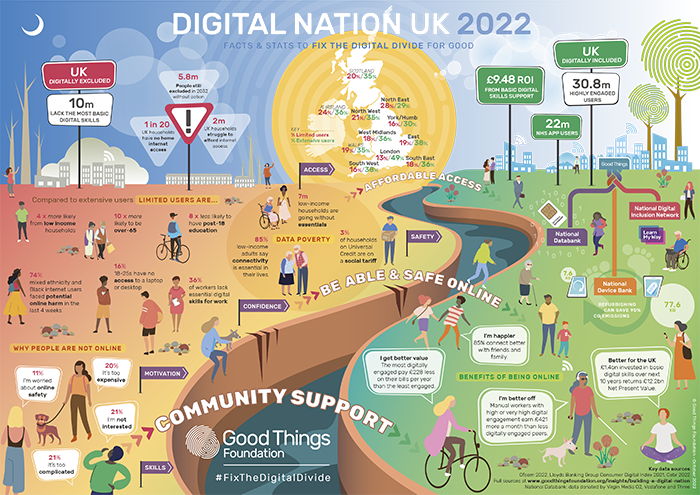New Voices RGU Student Series 2023 – Nuala Murray
Category: Blog, New Voices, New Voices, RGU Student Series

In this 2023 Student Series for the New Voices blog, the CILIPS Students & New Professionals Community will be sharing the views of Robert Gordon University students from the MSc in Information and Library Studies. With special thanks to Dr Konstantina Martzoukou, Teaching Excellence Fellow and Associate Professor, for organising these fantastic contributions. This series will be shared by CILIPS Graduate Trainee Leah Higgins.
 In this blog Nuala Murray writes of the Importance of Digital Inclusivity for older adults in contemporary society, addressing and contextualising the topic within a national scope. Nuala works in DCU University Library in Dublin as a Senior Library Assistant. She is currently enrolled in the RGU MSc Course in Information and Library Studies as a distance learner.
In this blog Nuala Murray writes of the Importance of Digital Inclusivity for older adults in contemporary society, addressing and contextualising the topic within a national scope. Nuala works in DCU University Library in Dublin as a Senior Library Assistant. She is currently enrolled in the RGU MSc Course in Information and Library Studies as a distance learner.
The Importance of Digital Inclusivity for Older Adults in Contemporary Society
Information Literacy in Context
Information literacy? Digital Literacy? What does it all mean, beyond the very obvious fact that we are a society obsessed with information and its retrieval? Definitions abound but essentially, information literacy is ‘the ability to think critically and make balanced judgements about any information we find and use. It empowers us as citizens to develop informed views and to engage fully with society’ (CILIP 2018). IFLA defines digital literacy as ‘the ability to harness the potential of digital tools’ so that one can ‘use technology to its fullest effect […]’ (IFLA 2017). But what about the older generation and the so-called digital divide? For many, information literacy is beyond their grasp and its lack is inextricably linked to social exclusion and marginalisation. This is where the information professional can lead the way, providing library services for older adults that are structured to suit their specific needs.
Older Adults and Digital Exclusion

Figure 2: Population by age group, UK.
OFFICE FOR NATIONAL STATISTICS, 2021. Living Longer: how our population is changing and why it matters.
In the UK in 2019, 3.7 million people aged 55 and over had never used the internet (ONS 2019 in Centre for Ageing Better 2020). This startling statistic highlights how a large and growing sector of the population feels digitally isolated from the rest of society (Casselden 2022). The issue of digital exclusion was exacerbated by the pandemic, which saw the proliferation of online services. Many older adults found themselves not only physically but virtually isolated from others and from vital services. Yet, we must not class all those over 55 as a homogenous group as factors such as education, income and gender also affect one’s opportunity to engage with digital technology. Overly-simplistic terminology such as ‘natives’ and ‘immigrants’ can be damaging to those who already feel excluded. Media coverage of cyber-crime, trolling, and security breaches further serve to create an environment of fear and mistrust for those wishing to join the digital mainstream (Barrie et al 2021). As we emerge from the pandemic, we must foster a society that promotes life-long learning across all generations and breaks down ageist stereotypes.
The Role of the Information Professional
What can the librarian do to support the development of literacy skills in older people? There are many ways to help educate and guide the learning of older members of the community. This, however, must be achieved in a holistic manner. Age UK highlights the most meaningful ways to engage with older adults, stating that helping people to explore their particular interests and providing tailored support in a friendly, patient environment is key. Furthermore, a Centre for Ageing Better (2021) briefing paper on the digital divide observed the need for better infrastructure (access to devices, WiFi) and skills training. In terms of the latter, this is where the librarian plays a fundamental role. Libraries remain vital community hubs offering a range of services for those in need. Digital training classes as well as one-to-one sessions can be hugely beneficial. These sessions must aim to build confidence and encourage autonomy and proactive learning. Research confirms that information literate people are those who have mastered how to learn and therefore become successful life-long learners (Andretta 2005). Often, the main motivation is to feel more socially connected, therefore these classes need to engage users and recognise their unique perspective.
Looking to the Future
Libraries must move beyond the physical space and embrace community outreach. Through such engagement, staff can invite users to collaborate, providing insight into the type of information literacy training they need. Librarians play a pivotal role in the fight against the digital exclusion of older members of the community. However, they cannot do this alone. Public libraries need the support of local and national governments and can benefit from partnerships with external organisations. Finally, information professionals must commit to upskilling and expanding their expert knowledge to keep up with digital developments (Martzoukou 2013).
Thank you to Nuala for such a succinct investigation into the importance of digital inclusivity for older adults to ensure no library user is left behind, looking at what aspects of libraries need to be supported but also updated to facilitate the literacy needs of all users.
Stay tuned for more in the 2023 New Voices Student Series coming soon and be sure to check out the rest of CILIPS SNPC’s New Voices blog.
Bibliography:
AGE UK, 2019. Loneliness and Digital Inclusion. London: Age UK. Available online [Accessed 31 October 2022].
ANDRETTA, S., 2005. Information literacy: a practitioner’s guide. Oxford: Chandos Publishing.
BARRIE, H., et al., 2021. “Because I’m Old”: The Role of Ageism in Older Adults’ Experiences of Digital Literacy Training in Public Libraries. Journal of Technology in Human Services, 39(4), pp. 379-404.
CASSELDEN, B., 2022. Not like riding a bike: How public libraries facilitate older people’s digital inclusion during the Covid-19 pandemic. Journal of Librarianship and Information Science,0(0).
CENTRE FOR AGEING BETTER, 2020. How has COVID-19 changed the landscape of digital inclusion? [online]. London: Centre for Ageing Better. Available from: https://ageing-better.org.uk/sites/default/files/2020-08/landscape-covid-19-digital.pdf [Accessed 02 November 2022].
CENTRE FOR AGEING BETTER, 2021. COVID-19 and the digital divide: Supporting digital inclusion and skills during the pandemic and beyond. Available online [Accessed 02 November 2022].
CILIP, 2018. What is information literacy? London: CILIP. Available online [Accessed 02 November 2022].
COSTA, C., GILLILAND, G., and MCWATT, J., 2019. I want to keep up with the younger generation – older adults and the web: a generational divide or generational collide?. International Journal of Lifelong Education, 38(5), pp. 566-578.
HORTON, J., 2019. Senior Citizens in the Twenty-First-Century Public Library, Public Library Quarterly, 38(2), pp. 179-192.
IFLA, 2017. IFLA Statement on Digital Literacy. Available online [Accessed 02 November].
MARTZOUKOU, K., 2013. Empowering Information Literacy and Continuing Professional Development of Librarians: New Paradigms for Learning. Communications in Computer and Information Science, 397, pp. 647-654.
WALSH, J., 2011. Information literacy instruction: Selecting an effective model. Oxford: Chandos Publishing.
